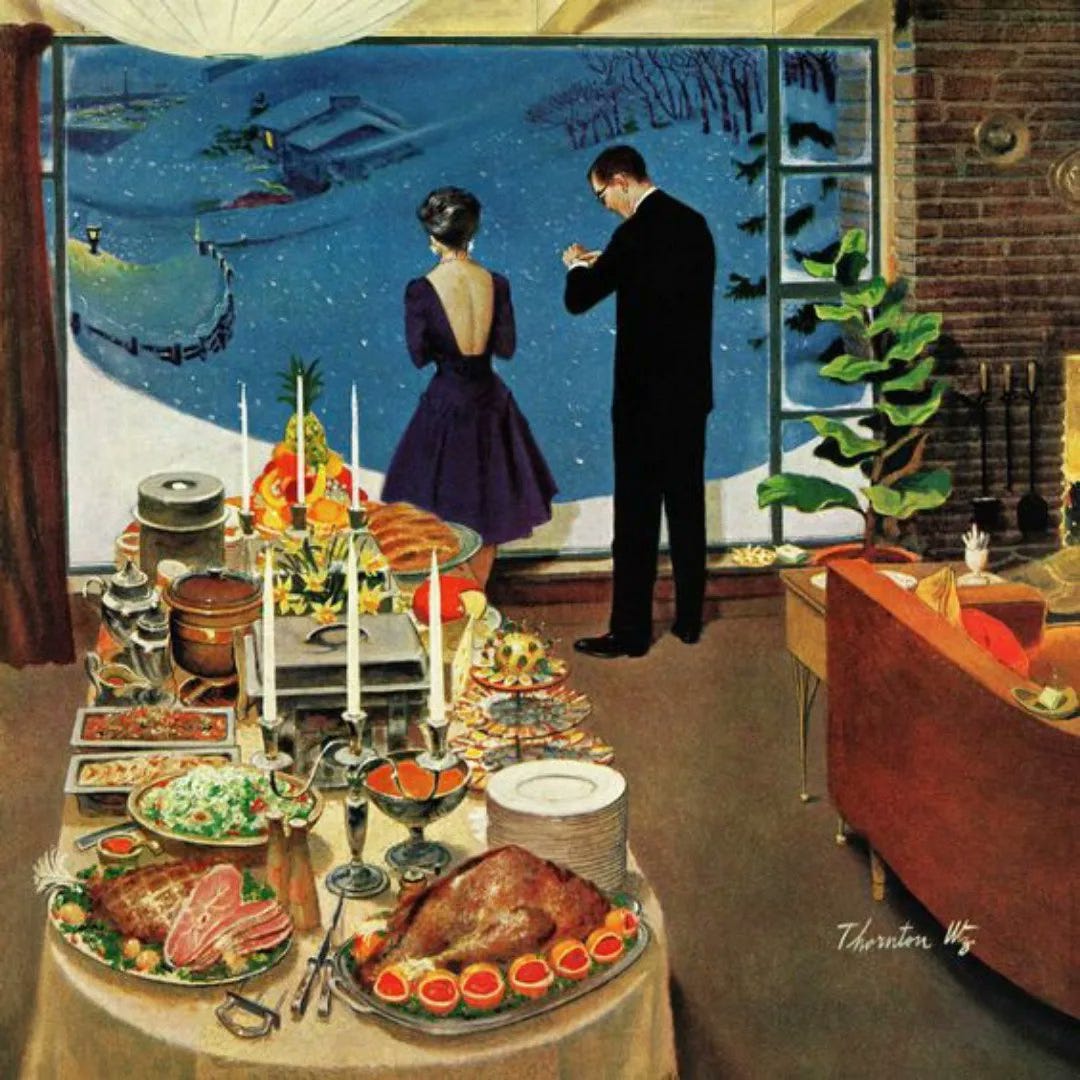Diary with Recipe: Patricia Storace, The Appetites of Poets
What we eat and drink is a profound part of our experience and perception, a vocabulary of wishes
Snow Buffet Party, by Thornton Utz (Saturday Evening Post cover, February 20, 1960
“Talking of Pleasure, this moment I was writing with one hand, and with the other holding to my Mouth a Nectarine—good god how fine,” Keats wrote to his friend Charles Dilke in 1819. “It went down soft, pulpy, slushy, oozy—all its delicious embonpoint melted down my throat like a large beatified Strawberry. I shall certainly breed.”
We are lucky Keats had no camera. His vivid words offer his lived experience to the reader, evidence of his capacity, rare even among poets, to remain articulate in the face of not only tragedy, but ecstasy. Witnessing Keats as he tastes gives him to us, suddenly incarnate, like seeing the words of his poems inked in his own handwriting. There he is: breathing. And looking, as an artist does, through a nectarine to see everything.
The title of David Yezzi’s new biography of the American poet Anthony Hecht, A Late Romance, evokes the great shaping experience of Hecht’s middle age: “receiving a second life” through an unexpected requited love and enduring marriage. Of course, for the poet’s substantially younger wife, the marriage was not a “late romance,” but the fulfillment of a suspended first love born when she was Anthony Hecht’s student in college.
Keep reading with a 7-day free trial
Subscribe to Book Post to keep reading this post and get 7 days of free access to the full post archives.




